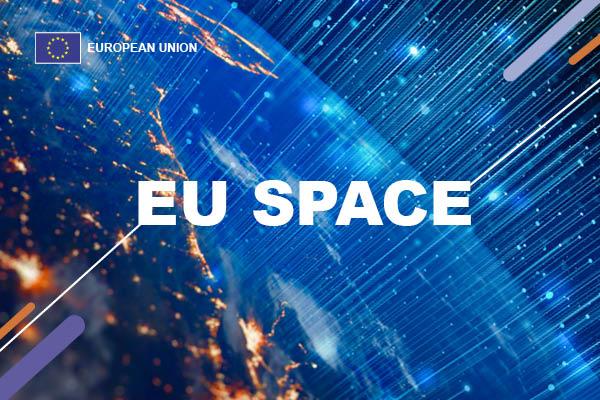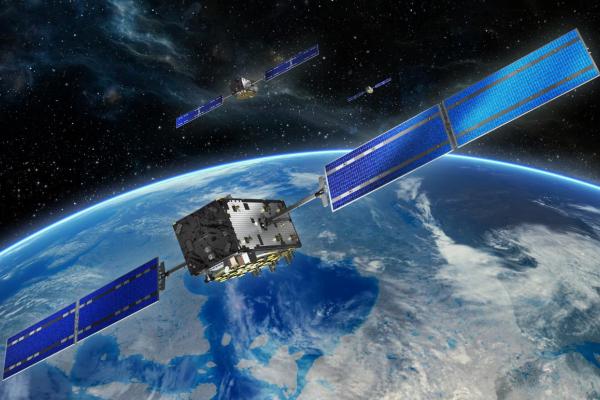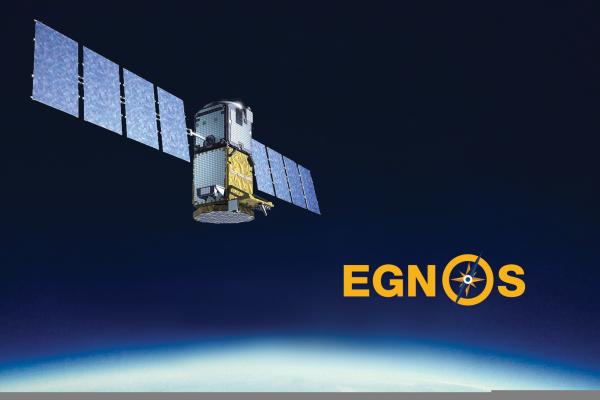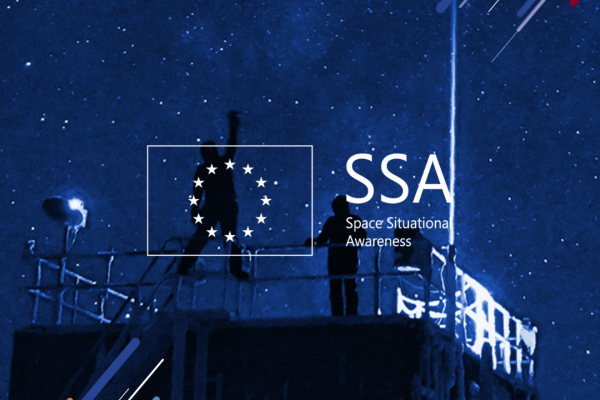new EU Space Programme under EUSPA
Summary
Budget
Official information source
https://ec.europa.eu/defence-industry-space/eu-space-policy/eu-space-program...Description
Linkt to VLEVA funding guide: https://www.vleva.eu/nl/programma/europees-ruimtevaartprogramma
EU SPACE Programme Overview factsheet
EU Space Programme
EU Space - Factsheets
The European Space Programme implements space activities in the fields of Earth Observation, Satellite Navigation, Connectivity, Space Research and Innovation. It encourages and supports innovation and competitiveness through investments in critical infrastructures and disruptive technologies.
While striving to strengthen European space assets and services, it also drives space entrepreneurship and innovative solutions based on space technologies, data and services with targeted investments towards European start-ups and SMEs via the development of initiatives such as CASSINI.
The EU Space Programme is backing the European space industry and research by bringing together existing stakeholders and contributing to the emergence of a European ‘New Space’ eco-system.
The following flagship components deliver European space-based services on a daily basis:
- COPERNICUS is the European Earth Observation (EO) system. It supports the management of the environment, helps to mitigate the effects of climate change and ensures safety and civil security across Europe. Copernicus is the first world provider of ‘big’ space data.
- GALILEO is a global satellite navigation and positioning system (GNSS) on which numerous EU economic sectors rely, from transport and agriculture to border management and search and rescue. Its 20cm accuracy makes Galileo a game changer for autonomous driving and commercial drones. Already more than 2.5 billion smartphones are Galileo-enabled.
- EGNOS is the European Geostationary Navigation Overlay Service: a reliable navigation signal improving the navigation services to aviation, maritime and land-based users over 30+ countries, and already operational in 426 airports and helipads.
In February 2022, the European Commission proposed two new flagship initiatives to boost satellite-based secure connectivity and Space Traffic Management:
- EU space-based secure connectivity system will ensure worldwide access to secure and cost-effective satellite communications services, for governmental communications and commercial use. It aims to protect critical infrastructures, support surveillance and crisis management, as well as enable high-speed broadband everywhere in Europe to best anticipate future challenges of our economy.
Space Traffic Management: The exponential applications of space services involve more and more satellites, thus more traffic in space. As the congestion of satellites and debris threaten the viability of space infrastructure, the European Commission and the High Representative of the Union for Foreign Affairs and Security Policy have presented an EU approach on Space Traffic Management (STM). This would further strengthen the Union’s space surveillance and tracking capabilities (already providing collision avoidance services to more than 260 European spacecraft), and set clear standards and regulation for a safe, sustainable and secure use of space.
The EU Space Programme is implemented in close cooperation with the EU Member States, the European Union Agency for the Space Programme (EUSPA), the European Space Agency (ESA), EUMETSAT and many other stakeholders. Ensuring effective and efficient cooperation and coordination between these actors is essential to optimise the impact of European policies and investment in space. The Programme's main targets are decision-makers, public authorities, EU commercial and private users and others, such as researchers and nongovernmental organisations. Ultimately, the programme serves the needs of EU citizens. The information gathered by the EU-owned satellites and the services which they provide are a public good, freely accessible to all.

Supporting the Sustainable Development Goals - Leaflets
EU SPACE Components

Europe's Eye's on Earth

Satellite navigation, made in Europe

Europe's regional satellite navigation system

Robust satellite communications for governmental users

Infrastructure for Resilience, Interconnectivity and Security by Satellite

Europe's eyes on space
History
In June 2018, the European Commission proposed a total budget allocation of €16 billion to finance space activities during the 2021-2027 period.
The bulk of this, €9.7 billion in current prices, would be allocated to Galileo and EGNOS, the EU's global and regional satellite navigation systems, €5.8 billion would be allocated to Copernicus, the EU's Earth Observation programme, and €500 million would be earmarked for security, such as the Space and Situational Awareness (SSA) programme and the new Governmental Satellite Communication initiative (GOVSATCOM) to support border protection, civil protection and humanitarian interventions, for instance.
The main aims of the new space programme are to secure EU leadership in space activities, foster innovative industries, safeguard autonomous access to space and simplify governance.
The space programme would upgrade the European Global Navigation Satellite Systems (GNSS) Agency by expanding its tasks and transforming it into the new EU Agency for the Space Programme (EUSPA). In April 2019, after several trilogue meetings, Parliament and Council reached a partial agreement on the programme, covering the content, but not, among other things, budgetary issues. Parliament adopted its position at first reading in April. Further discussions on the outstanding issues can be expected once Council reaches agreement on the overall multiannual budget. Second edition. The 'EU Legislation in Progress' briefings are updated at key stages throughout the legislative procedure.
The new programme will bring together the existing infrastructure and services and introduce new features, such as:
- safeguarding continuity and evolution of Galileo and EGNOS, the EU's global and regional satellite navigation systems as well as Copernicus, the EU's free and open Earth observation programme (of e.g. atmosphere, sea, climate change and for emergency management);
- developing new security components, such as the performance and autonomy of Space and Situational Awareness (SSA) or the new Governmental Satellite Communication (GOVSATCOM) to access to secure satellite communications for national authorities and monitoring of space hazards;
- fostering a strong and innovative space industry, e.g. by improving access for space start-ups and small and medium-sized enterprises (SMEs) to risk finance, facilitating access to testing and processing facilities, or promoting certification and standardisation;
- maintaining the EU's autonomous access to space, e.g. by aggregating the EU demand for launch services and investments in innovative technology, such as reusable launchers;
- unifying and simplifying the system of governance, e.g. by introducing a single Regulation to allow for streamlined ways of simpler cooperation between all institutional actors - in this context, the Commission as programme manager will set priorities and operational decisions, and the European Space Agency (ESA) remains the main partner in the Programme implementation whereas the (new) EU Agency for the Space Programme will support market uptake and security accreditation.
For the period of 2021-2027, the Commission proposes a budget of €16 billion in current prices and wants to allocate the budget as follows: €9.7 billion for Galileo and EGNOS; €5.8 billion for Copernicus; and €0.5 billion for SSA and GOVSATCOM.
In the Council, talks about the Commission proposal started in summer 2018.
On 12 June 2018, the European Parliament's lead committee, the Industry, Research and Energy (ITRE) committee, appointed Massimiliano Salini (EPP, Italy) as rapporteur. The ITRE committee adopted the report on 21 November 2018, the plenary on 13 December. A mandate was provided to enter into informal negotiations with the Council. During the second trilogue on 26/27 February 2019, co-legislators reached a partial agreement.
The Commission, however, suggested an amended wording of certain paragraphs. The reservations include governance and role sharing between the European Commission, the European Space Agency (ESA) and the future EU Agency for the Space Programme. The Commission, for instance, opposes the mandatory delegation of certain tasks to ESA as it fears that ESA would not adapt its decision-making rules to ensure that a third country could not block a decision (e.g. in view of Brexit). And the possibility of delegating tasks to ESA makes the Commission fear it might lose control over the management of the space programme.
On 13 March 2019, Council presented an updated partial agreement. It amended some of the wording for a better clarification (as proposed by the Commission). The ITRE committee adopted this agreement on 25 March 2019, and the plenary on 17 April 2019. Some of the agreement’s main points are:
- the regulation establishes the space programme as well as the EU Agency for the Space Programme that replaces and succeeds the European GNSS Agency;
- Parliament asks for an increase of the budget from €16 billion to €16.9 billion in current prices, i.e. for Galileo and EGNOS €9.7 billion; for Copernicus €6 billion (Commission had proposed €5.8 billion); for SSA/GOVSATCOM €1.2 billion (Commission had proposed €0.5 billion);
- the financial framework partnership agreement defines the roles, responsibilities and obligations of the Commission, the EU Agency for the Space Programme and the European Space Agency with regard to each component of the space programme and necessary coordination and control mechanisms. In this context, the ESA has to apply the Union security rules, in particular with regard to the processing of classified information;
- in order to ensure uniform conditions for the implementation of the space programme's security requirements, implementing powers should be conferred on the Commission;
- to increase the participation of SMEs, for contracts above ten million Euro, the contracting authority shall ensure that at least 30% of the value of the contract is subcontracted to companies outside the group of the prime contractor, notably in order to enable the cross-border participation of SMEs.
Provisions related to the protection of security interests, ownership and licence rights, and the participation of third countries and/or international organisations in the space programme were left outside at this stage. The same holds true for budgetary issues, as they require the completion of negotiations on the multiannual financial framework (MFF) 2021-2027.
Parliament and Council resumed their co-working on the file after the European elections (23-26 May 2019) and the installation of the new European Commission in December 2019.
In the beginning of December 2019, the Finnish Presidency published some numbers on the new MFF. The negotiating box with figures presents an overall level of €1.087 billion for the 2021-2027 period, representing 1.07% of EU gross national income, and taking into account the future (post-Brexit) European Union of 27 Member States. The Finnish Presidency proposed to allocate €12.7 billion in constant 2018 prices to the Space Programme (of which €7.7 billion dedicated to Galileo and €4.6 billion to Copernicus). These amounts are now subject of discussions with the Member States and the new Croatian Presidency.
On 14 February 2020, the new President of the European Council, Charles Michel, unveiled his draft European Council conclusions for the MFF and own resources for the 2021-2027 period. President Michel used the Finnish Presidency’s negotiating box, thus staying at 1.07% of EU’s GNI. According to a European Parliament simulation, Michel’s proposal would increase the Space programme budget from €12.7 billion (Finnish Presidency's proposal) to €13.2 billion. During the Special European Council meeting on 20/21 February 2020, however, there was no majority for Michel's MFF proposal.

